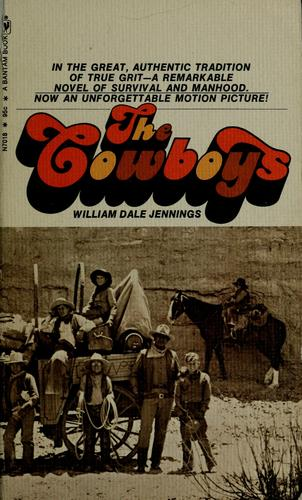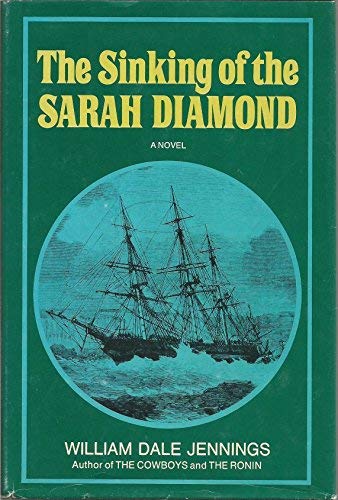William Dale Jennings, who was born in 1917 to Charlotte Sophia Knebel Jennings and William Arthur Jennings, thus usually went by Dale Jennings in daily life throughout most of his years, was a young dancer who became enamored of performing arts generally at a young age, and began scripting as well as performing them; enlisted in the US Army in 1942, honorably discharged in 1946, and a closeted gay man in those years, he helped found the Mattachine Society after he and his then boyfriend joined the discussion meetings that formed around Harry Hay and others in San Francisco; Jennings had his Rosa Parks moment a bit earlier than she did, in 1950, when (as he testified) he was followed home from a public restroom by an undercover cop who was trying to solicit him (Jennings wondered if the man was actually trying to rob him), and who in turn charged Jennings with illegal (because homosexual) solicitation. What made this case extremely unusual for the time was Jennings's willingness to not simply pay the fine and keep everything anonymous, but (with support from fellow Mattachine Society members and others) to go to trial; apparently his jury was hung, eleven jurors voting to acquit and a diehard holdout refusing to countenance anything but a guilty verdict, and the prosecution unwilling to refile the charges. Jennings, not long after, left Mattachine (where, apparently, the tendency was toward promoting homosexual men as the inherently culturally gifted as well as persecuted minority) and helped cofound ONE, Incorporated, which took a more egalitarian approach toward equal rights for gay men and lesbians (among others); Jennings edited their magazine, One, from founding in 1952 until 1954, when the business manager of ONE, Inc., and others, objecting to Jennings's combative tone, forced him from the editorship.
Throughout his long life, he was often involved in one sort of narrative art or another, ranging from working for the Ice Capades organization through working with West Coast regional editions of TV Guide, producing short films (including the intentionally goofy 1963 bicycle-safety film for kids, "One Got Fat", which he wrote and directed, narrated by Edward Everett Horton; kind of an absurdist take on the Ohio State Highway Patrol automobile-safety/bloodbath short films), and among his writings were his three published novels, The Ronin (1968), which he wrote while working for the Ice Capades, The Cowboys (1971, and the basis of the 1972 John Wayne film and subsequent short-lived 1974 television series), and The Sinking of the Sarah Diamond (1974). And only two of his short stories have been published, as far as I can tell, "Children of the Cemetery" in Esquire, while he was still in the service in 1945, and "The Gingerbread Man" in 1954 in F&SF. (How many of his short stories might've been published in various magazines under "undiscovered" pseudonyms is a good question.)
I read "The Gingerbread Man" in one of the first older issues of The Magazine of Fantasy and Science fiction I collected, in 1978, and it has stuck in my mind as a good example of an undeservedly "forgotten" story ever since...a deft, offhanded short that, as I had no way of knowing at first encounter, nor until rereading just now, seems pretty clearly inspired by Jennings's experience with the undercover vice cop who framed him in 1950, transmuted into the kind of suspense story which verges on horror fiction without quite crossing the line, though "Anthony Boucher" and J. Francis McComas's blurb for the story, which suggests it resembles, like certain Edward Lucas White stories, "the direct transcription of a nightmare", is a fair one. (The editors also mistook the story for the first published one by Jennings, perhaps by Jennings being less than enthusiastic about his earlier published work, under his full name.) It can be read here and here...aside from these arguable exceptions (and similar online archiving), to the best of my knowledge it has never been reprinted.
Having just read "Children of the Cemetery" for the first time this afternoon, I have to wonder if this slightly longer first story by Jennings was published in part to have a story from a serviceman in the issue; while it's not a terrible piece, it's rather painfully the work of a not altogether unsophisticated beginning writer, mixing some rather telling critique of the US GIs' attitude toward the Polynesian natives they are observing and interacting with (condescending and racist at best), as well as their surprise at how they deal with some hapless remnants of the Japanese attempted occupation forces who make the mistake of attempting resistance; but everything is ladled on so langorously that even in relatively few pages, it's stilted, and feels not altogether free of the chauvinism it is simultaneously trying to mock. Amusing, if also overgenerous, are the detailed descriptions of the anatomy of the entirely male cast of the story (the natives "hide their women away carefully"), where the gay subtext is no longer altogether subtext, even if no one is described completely flatteringly, whether white, Polynesian or Japanese. Nine years more as a writer tells, in the contrast between these two short stories. This one can be read here. (At least one cartoon in the issue has a[n even] less enlightened "gag" view of US-Polynesian wartime interaction...though even the slight Chester Himes vignette is, unsurprisingly, better reading than the Jennings debut story.)
For more of today's Short Story Wednesdays reviews, please see Patti Abbott's blog.
From the FictionMags Index:
- Esquire [v23 #4, No. 137, April 1945] ed. Arnold Gingrich (50¢ US/55¢ Canadian,10″ x 13″) [] (Full Text)
- 37 · Look Out for Deflation · Julius Hirsch · ar
- 38 · Children of the Cemetery · William Dale Jennings · ss
- 42 · The Pirate and the General · Howard Fast · ss [TM: a historical fiction story, unsurprisingly for Fast, which Esquire uncleverly labels "fact/fiction".]
- 47 · Gravy for the Navy · Phil Stack · pm; illustrated by Varga
- 49 · Incident in the Nick of Time · Jerry Davis · ss
- 50 · The Monarch’s Last Tanto · Robert Sylvester · ss
- 52 · What Makes a Criminal Lawyer · Lloyd Shearer · ar
- 54 · The End of Indian Summer · Maurice Baudin, Jr. · ss
- 62 · Return to Pleasant Waters · Paul Strahl · ss
- 64 · The Wild Buckskin Stallion · Jack Tooker · ar
- 68 · The Odyssey of Old Specs · Paul Annixter · ss
- 80 · Esquire’s Ready-to-Speak French II · Frank Henius · ar
- 103 · Tension: Golf’s Greatest Hazard · Tommy Armour · ar
- 108 · The Stand of the Wooden Soldier · Alfred Neumann · ss
- Listing fiction, poetry, and selected articles.
.png)

.png)





.jpg)















